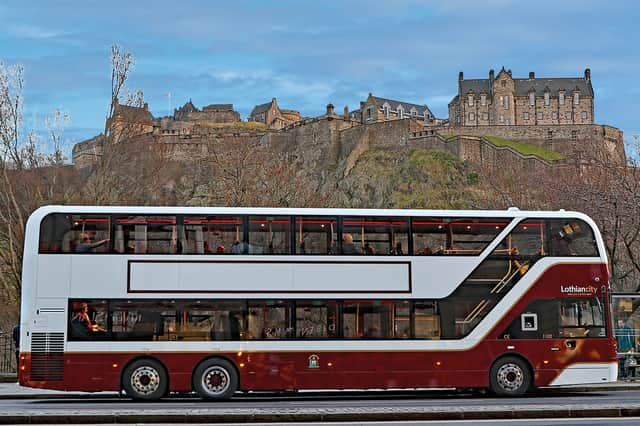Edinburgh transport: smartcard plan means Oyster card-style travel could finally reach Capital
and live on Freeview channel 276
This week’s announcement that the Scottish Government will explore a single-ticketing system for the nation’s public transport could be a game-changer for Edinburgh.
Net Zero minister Màiri McAllan revealed the move as the country’s climate targets were dramatically rolled back having been dubbed unworkable by experts.
Advertisement
Hide AdAdvertisement
Hide AdBut while you’ll struggle to find anyone in Auld Reekie who doesn’t fancy the convenience of the smartcard schemes used in other major cities, commuters have plenty of reason to wonder if it will amount to hot air.


The prospect of introducing Oyster card-style travel to the Capital has been on the agenda for several years but never come to fruition.
Meanwhile, public transport users in London have been tapping on and off tubes, overground trains, buses and trams for more than two decades now.
Across the water, Dublin’s Leap Card was introduced in 2011 and covers buses, trams and commuter rail services.
Advertisement
Hide AdAdvertisement
Hide AdCountless other European cities have been using pay-as-you-go smartcards for several years.
The Scottish capital’s Ridacard works in a similar way to those systems but only covers those modes of transport delivered by Lothian Buses and Edinburgh Trams.
That means people travelling into the city from further afield often have to buy more than one ticket as their journey involves more than one provider.
Contactless payments were introduced by the city’s main bus firm in 2019 in a major boost for passenger convenience.
Advertisement
Hide AdAdvertisement
Hide AdBut proponents of an integrated ticketing system argue it would offer much greater compatibility between providers.
Then deputy first minister Nicola Sturgeon first unveiled plans for a ‘Saltire Card’ back in 2012 with trains, buses, ferries and trams across the country all set to be included.
That plan never got off the ground, but the city council has advocated for a local version throughout the 12 years since.


One major obstacle seems to have been a lack of agreement among providers, with Lothian Buses objecting to proposals for a scheme to be in place by 2026.
Advertisement
Hide AdAdvertisement
Hide AdThe bus firm said in 2019 that a smartcard would not be a ‘sustainable, fit for purpose, long term solution’ for its customers.
Lesley Macinnes, who was then the local authority’s transport convener, called on the company to ‘play its part’ in modernising the city’s network.
Lib Dem councillor Kevin Lang was one of those who railed in support of a smartcard scheme.
He said in 2019: “This should not be a revolutionary or difficult thing to introduce, especially when technology is used across different transport providers. In many ways it’s astonishing that kind of thing is not available already.
Advertisement
Hide AdAdvertisement
Hide Ad“People in my ward will often use train services to get into Edinburgh but then need a bus to get on to where they work, so this is not only important, it is an extra way of attracting more people to leave their cars at home and use public transport.”
Four-and-a-half years on, Edinburgh still lags behind other cities when it comes to integrated ticketing.
The news from Holyrood will be welcome to many commuters but given recent history, they’ll be forgiven for believing it when they see it.
Comment Guidelines
National World encourages reader discussion on our stories. User feedback, insights and back-and-forth exchanges add a rich layer of context to reporting. Please review our Community Guidelines before commenting.